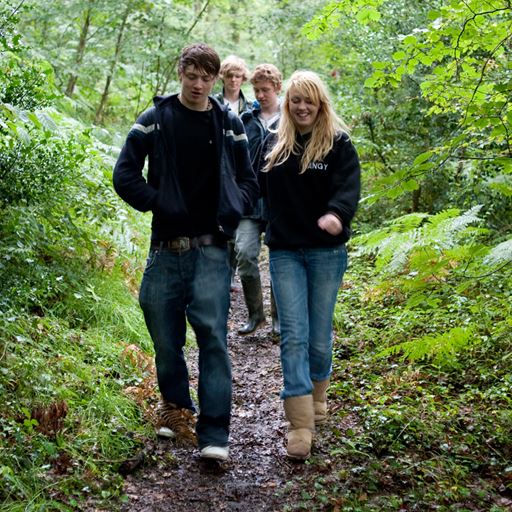Why teenagers need to get more connected to nature
-
Date
Tue 16 Apr 19

Mid-teenagers feel less connected to nature than any other age group, according to new research from the RSPB and the University of Essex.
At a time when there are growing concerns over the mental health of today’s youngsters it is important to highlight the positive wellbeing benefits of enjoying the natural environment and the worrying low level of teenagers feeling connected to nature.
The study, published in The Ecological Society of America’s prestigious Frontiers in Ecology and the Environment journal, is the first of its kind to offer a comprehensive snapshot of how connected to nature people aged 5-75 in the UK feel.
Data, collected from nearly 2,500 people via face-to-face surveys and online questionnaires, showed a clear decline from childhood to a “teenage trough” with 15-16-year-olds feeling the least connected to nature. This was then followed by a rise to the early 20s where it reached a plateau into retirement. With the exceptions of people in their late 20s, men also showed a lower connection with nature than women.
The study did not determine why mid-teenagers were the least connected but suggested it could be many reasons including hitting an age where they have a change in lifestyle with more freedom, exams and interaction with social media. The researchers would like the study to be part of a long-term project to see if this lack of connection with nature is a generational trait or if current teenagers remain less connected to the natural environment throughout their lifetime.
"With the mental health of today's teenagers regularly making the headlines it is interesting that our research showed the age group least connected to nature was 15-16-year-olds."
The RSPB is developing its research into people’s connection to nature as studies suggest that people with a greater connection to nature are more likely to behave positively towards the environment, wildlife and habitats.
The concept of green exercise – physical activity in nature environments – was first coined at Essex more than 15 years ago, boosting global interest in maximising uses of nature to improve mental wellbeing.
“Our research at Essex has shown clearly that actively engaging with nature can benefit wellbeing, and we have worked with a number of national charities on environmental projects which have improved the mental health of participants,” explained green exercise expert Dr Mike Rogerson, from the Essex School of Sport, Rehabilitation and Exercise Sciences. “With the mental health of today’s teenagers regularly making the headlines it is interesting that our research showed the age group least connected to nature was 15-16-year-olds.”
Dr Joelene Hughes, from the RSPB Centre for Conservation Science, said: “This detailed investigation of connection and age has raised a lot of interesting questions about what personal, social and environmental factors affect people’s connection to nature, plus how conservation interventions can be more effective in developing people’s connection to nature at different ages.
“Our collaboration the University of Essex is an exciting and interesting line of research that I hope will continue well into the future, reaping more rewards for conservation.”
.jpg?mh=500&mw=500&hash=6568B6C9CCF5290A596BEF6678B6AD0E)



